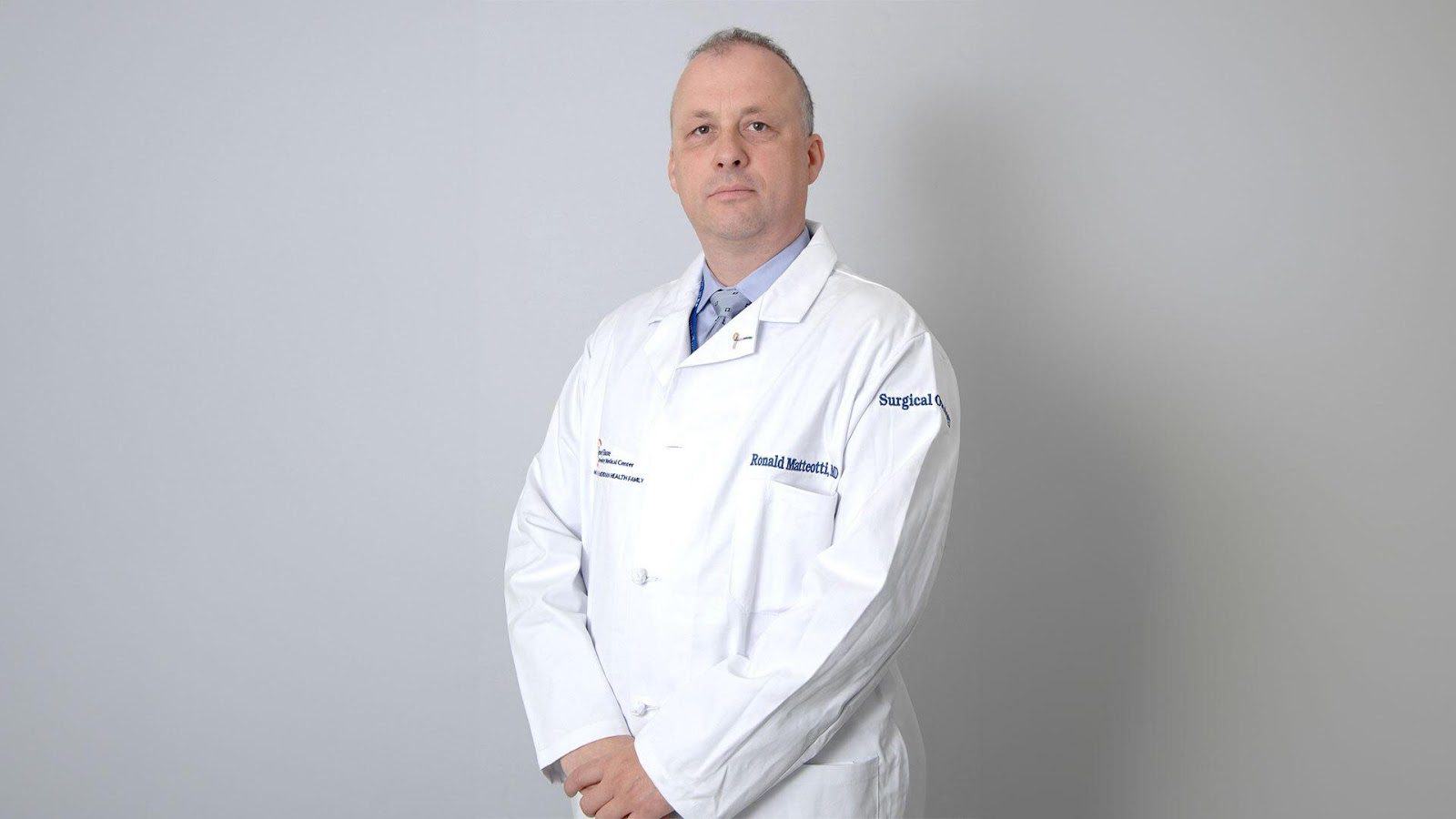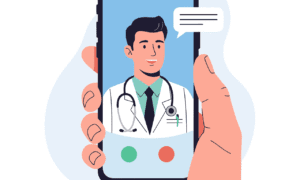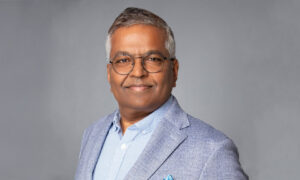The rapid expansion of digital health platforms has transformed how patients access care, breaking down traditional barriers to specialist expertise. Virtual consultations, for example, have enabled patients to connect with clinicians without the burden of travel or scheduling constraints. Yet this digital shift also introduces new challenges. Patients today are inundated with vast amounts of online health information.
“Before, they came in with Google printouts,” says Ronald Matteotti, MD. “Now, with conversational AI tools like ChatGPT, they come in with even more data, often without context. The physician’s role is to help them make sense of it all.”
As a triple board-certified surgeon and Global Medical Affairs leader at Bristol Myers Squibb, Matteotti has spent more than 2 decades advancing clinical excellence and global oncology strategy. Today, he focuses on rebuilding patient trust in cancer care through telehealth with Trusted Telehealth®, a physician-designed oncology telehealth platform that combines advanced technology with human-centered care.
“Before COVID, patients wanted that face-to-face interaction with their physician,” says Matteotti. “Especially in oncology, where the diagnosis is deeply personal, the human connection remains essential.” But the pandemic proved that technology can expand access without compromising compassion.
The Human Layer Behind AI
Trusted Telehealth® reflects a broader shift in the medical field, where technology and human expertise are increasingly intertwined to deliver better, more accessible patient care. The platform uses AI to improve efficiency and scale. Every treatment plan is reviewed and validated by experienced physicians before being delivered to the patient. “Patients often ask, ‘Is AI making decisions about my cancer treatment?’ That’s the biggest concern,” he explains. “Our approach is that AI is here to help, not to take over.”
Applying telehealth to oncology is no easy task. Unlike primary care or urgent-care telemedicine, cancer management requires oncologists, radiologists, and surgeons working in concert, often interpreting imaging, pathology reports, and biomarker data in real time. “Many large telehealth providers avoid oncology, but that’s exactly where the greatest unmet need lies. AI helps us process information faster, but it’s the physician who brings empathy, experience, and accountability.”
Perhaps more than any other industry, the integration of AI brings new risks and responsibilities for healthcare professionals. While AI models can deliver high accuracy in diagnostic tasks, they still make mistakes when explaining their decisions, highlighting that human experience remains essential. “AI doesn’t get sued. The doctor does. That’s why the human layer will always matter.”
Building Empathy into Algorithms
Trusted Telehealth® operates on a “360-degree” approach, combining medical precision with patient-specific factors like geography, economic situation, and emotional readiness. His main aim is to provide personalized, continuous care.“You can have the most sophisticated treatment plan, but if it doesn’t fit your life circumstances, it’s not truly effective,” he says.
The platform also addresses one of the most overlooked aspects of cancer care: follow-up. “After surgery or chemotherapy, patients are often left navigating disjointed care on their own,” Matteotti explains. “We developed a longitudinal surveillance plan, personalized calendars that remind patients about follow-up scans, lab work, and check-ins. It’s about staying connected long after the initial diagnosis.”
Turning Personal Experience into Purpose
The vision behind Trusted Telehealth® was born from a deeply personal moment. When a close family member, also a physician, was diagnosed with breast cancer, Matteotti found himself struggling to navigate the system despite his own expertise. “I was chief of liver and pancreas surgery, but when it came to breast cancer, I had to start from zero,” he recalls. “It took us months to find the right care. I thought, if I’m having this much trouble, what chance does the average person have?”
That realization inspired him to pursue an MBA during the pandemic and to pitch a new kind of oncology platform, one that would merge trusted clinical expertise with intelligent technology. “Knowledge isn’t the problem anymore,” he says. “Applied knowledge is. Patients need someone to connect the dots for them.”
Expanding Global Access to Expertise
While Trusted Telehealth® is based in North America, Matteotti’s ambitions are global. A native of Switzerland, he sees international opportunity in offering access to U.S. board-certified specialists. “Outside the U.S., that credential is seen as the gold standard,” he explains. “Our physicians have rigorous training, fellowship experience, and at least a decade in the field. That quality seal is what we’re exporting.”
Partnerships in Europe are already underway, including plans to expand into Switzerland through a local collaborator. “If we succeed in the U.S., we can bring this standard of care to patients everywhere,” Matteotti says.
Ultimately, Matteotti’s mission is to restore clarity and trust for people facing one of life’s most daunting diagnoses. “When patients hear the words ‘you have cancer,’ their world stops,” he shares. “They need answers immediately, not in five weeks.” Trusted Telehealth® connects patients to top specialists within 72 hours, providing comprehensive reports and second opinions that align with NCCN®l and FDA-approved standards.
“Our vision is to turn uncertainty into understanding,” Matteotti says. “Trusted Telehealth® is where AI meets empathy in cancer care, with the human touch always at the center.”
Connect with Dr. Ronald Matteotti on LinkedIn or visit his website.
Get clarity when you need it with www.tth.ai

































